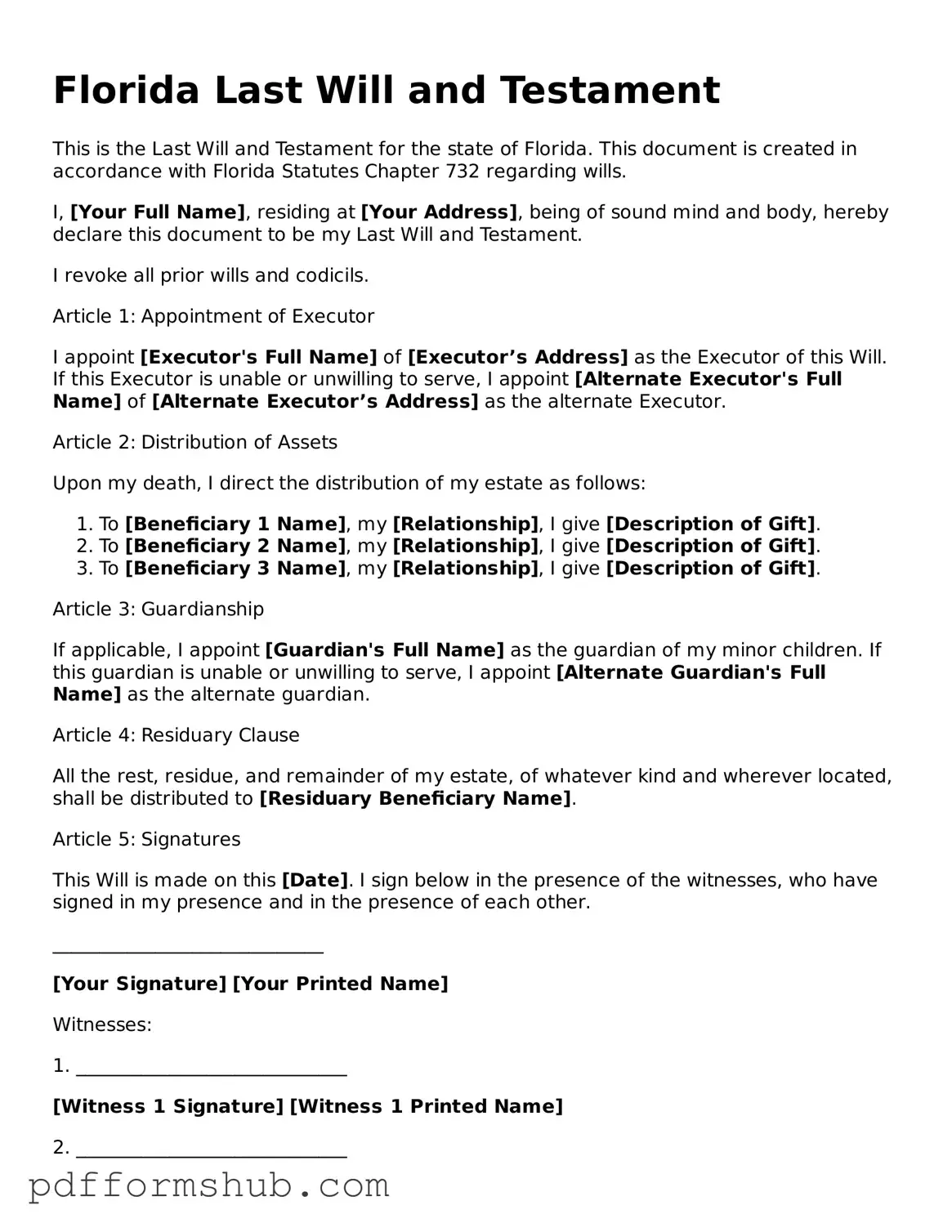Attorney-Verified Last Will and Testament Form for Florida State
A Florida Last Will and Testament is a legal document that outlines how an individual’s assets and affairs will be managed after their death. This form allows a person to designate beneficiaries, appoint guardians for minor children, and specify funeral arrangements. To ensure your wishes are honored, consider filling out the form by clicking the button below.
Customize Form

Attorney-Verified Last Will and Testament Form for Florida State
Customize Form

Customize Form
or
Free PDF Form
Short deadline? Complete this form now
Complete Last Will and Testament online without printing hassles.